Tales of Cities | Guangzhou: From ancient port to modern sports hub
As the first ray of dawn skims the glass facade of Canton Tower, Guangzhou, a commercial hub in south China's Guangdong Province, awakens to a rhythm where tradition and modernity converge. Melodious Cantonese opera drifts from Xiguan's iconic Qilou buildings, while autonomous vehicles glide through the bustling streets of Zhujiang New Town.
This unique blend defines the city as it prepares to co-host the country's 15th National Games, which is set to kick off on Nov. 9, 2025. Guangzhou is showcasing its multifaceted charm to the world through the power of sports and innovation.
The pulse of a sporting city
By 6 a.m., the greenway along the Pearl River is already a hive of activity: the elderly practice Tai Chi with calm intensity; young runners dash by, sweat glinting in the dawn; children skip rope amid laughter; cyclists weave through the crowd; and retirees rally in energetic table tennis matches. For Guangzhou, "fitness for all" is no longer just a slogan — it has become part of daily life and one of the city's most endearing traits.
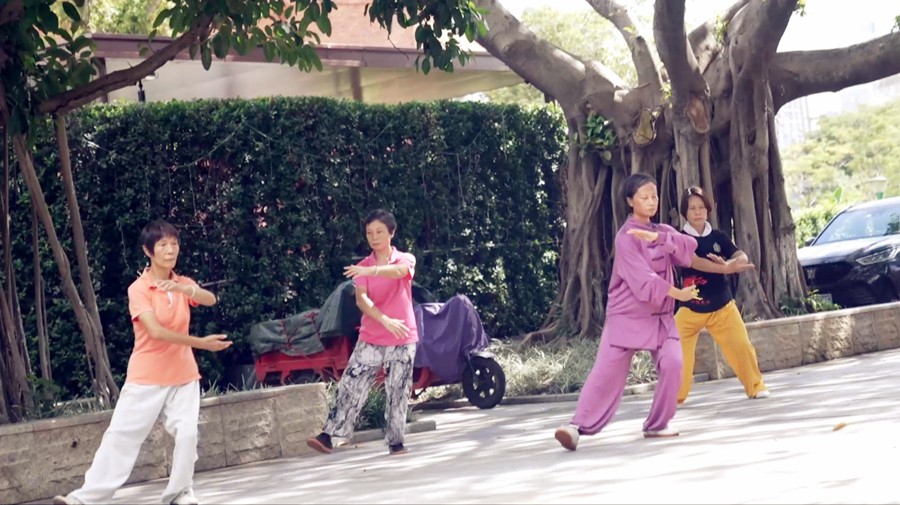
Photo shows retirees practicing Tai Chi in a park in Guangzhou, south China's Guangdong Province, Sept. 8, 2025. (People's Daily Online/Zhang Rong)
Guangzhou's sports legacy ties to its growth. In 1987, the sixth National Games led to the construction of Tianhe Sports Center, and in 2001, the ninth National Games upgraded public facilities. The 2010 Asian Games further transformed the city into a modern international metropolis. Now, the 15th National Games marks the third time Guangzhou hosts China's top multi-sport event, a testament to its enduring role in national sports.
The city's athletic prowess is equally notable. It has nurtured Olympic champions including Chen Aisen (a Guangzhou native), Lei Sheng, and Quan Hongchan, as well as rising star Liu Yuke, a standout in China's U16 women's football team. These talents reflect Guangzhou's robust sports development system and wide-ranging athletic excellence.
The inclusive spirit blending tradition and modernity
Inclusivity is etched into Guangzhou’s DNA, visible in every corner where old and new coexist harmoniously. By day, Baomo Garden, a classical Chinese garden in Panyu District, resounds with Cantonese opera performances, drawing international visitors who pause to absorb the traditional art form. At night, beneath Liede Bridge, rhythmic gongs and drums echo as Chaoshan youths practice Yingge dance. The beats interweave with the distant hum of traffic, creating a unique symphony of heritage and urban life.
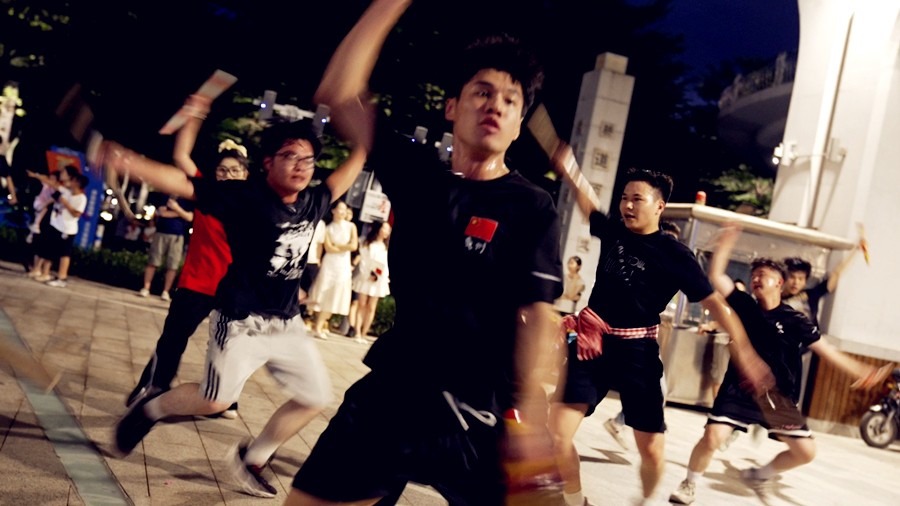
Photo shows Chaoshan youths practicing Yingge dance beneath Liede Bridge in Guangzhou, south China's Guangdong Province, Sept. 7, 2025. (People's Daily Online/Zhang Rong)
Even in daily moments, this balance shines: in local tea restaurants, QR codes enable quick, digital orders, yet handwritten menus remain to preserve a warm, nostalgic touch, blending efficiency with tradition.
This inclusiveness spirit extends to preparations for the 15th National Games. The event's medals, named "Tongxinyue"(meaning united leaps), integrate cultural symbols of the Guangdong-Hong Kong-Macao Greater Bay Area: kapok, bauhinia and lotus. The medal's outer ring is shaped like the Hong Kong-Zhuhai-Macao Bridge, a landmark of regional integration, symbolizing unity and shared progress among the three regions.
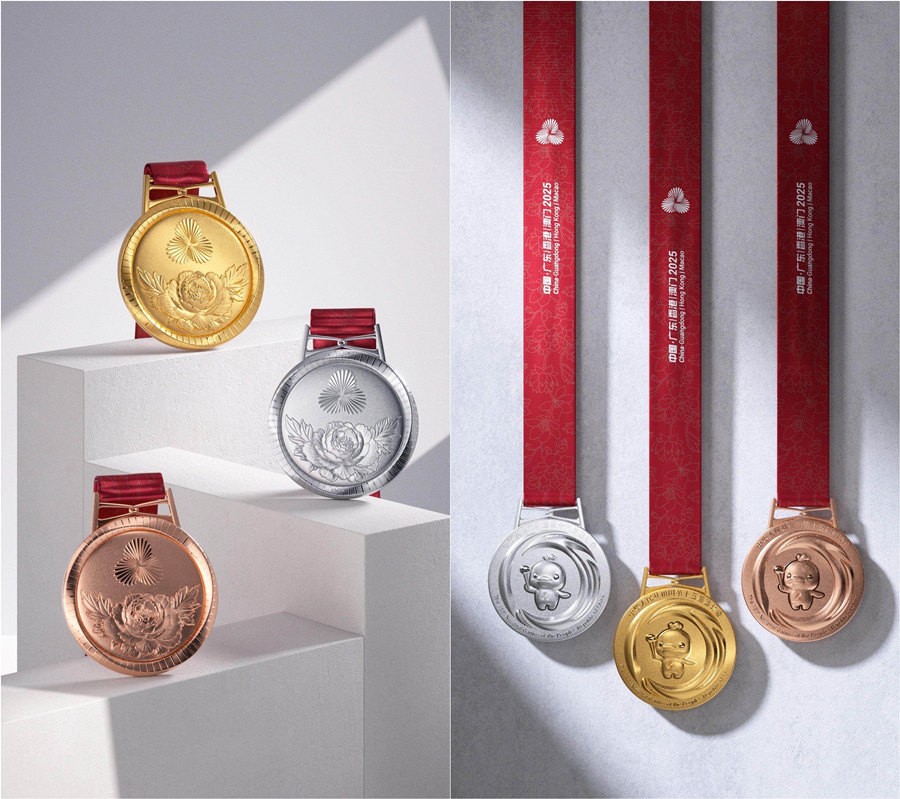
Medals for the 15th National Games of China. (Photo/Xinhua)
Smart sports, smarter city
As a frontier of China's reform and opening up, Guangzhou has made innovation a cornerstone of its 15th National Games preparations, with a focus on the "green, smart thrifty" concept.
All 30 competition venues for the Games are existing facilities that were upgraded rather than newly built. Tianhe Sports Center, a key venue, has adopted photovoltaic power generation and rainwater recycling systems, cutting carbon emissions by over 45 percent and becoming China's first large-scale stadium upgraded toward near-zero-carbon standards. The center also introduced an intelligent fitness running track infused with elements of Cantonese culture, equipped with real-time monitoring of athletic performance.
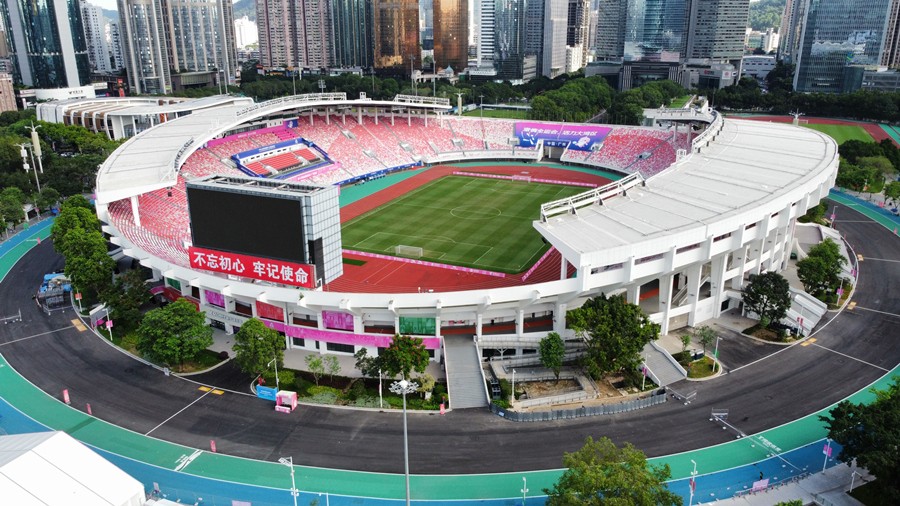
An aerial drone photo shows Guangzhou's Tianhe Sports Center. (Photo provided to People's Daily Online by the Guangzhou Executive Committee of the 15th National Games, the 12th National Games for Persons with Disabilities and the 9th National Special Olympic Games)
Digital technology further elevates the Games experience. Autonomous vehicles have been deployed at key locations, including the media center, competition venues, major hotels, Guangzhou South Station and Guangzhou Baiyun International Airport. These shuttles offer "point-to-point" transfers for athletes, officials, and media, ensuring efficient and contactless travel.
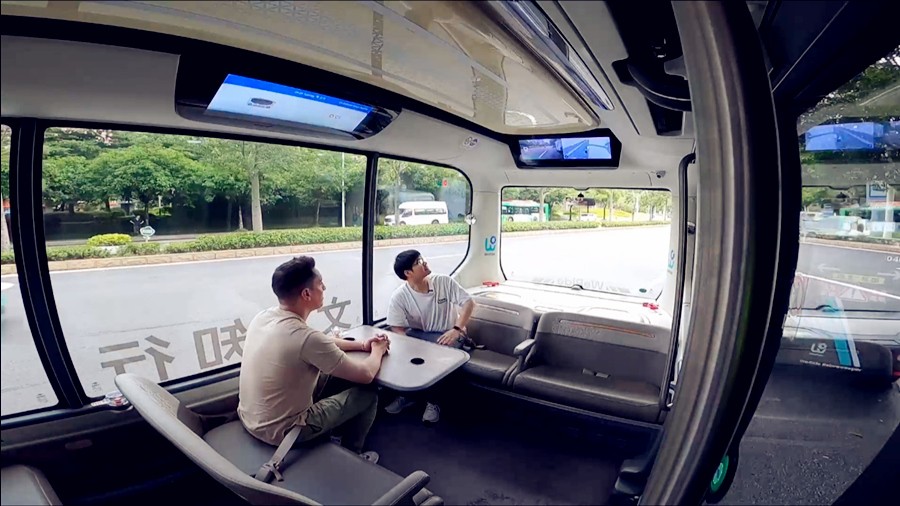
Spanish traveler Alvaro Lago (first from left) experiences an autonomous bus in Guangzhou. (People's Daily Online/Yuan Meng)
By building a "Smart National Games," Guangzhou is accelerating the deep integration of next-generation information technologies such as 5G, AI, and big data with the sports industry. Beyond this, it is exploring the establishment of a Guangdong-Hong Kong-Macao tech innovation collaboration mechanism, promoting the convergence of the event and the digital economy, and bringing fresh momentum to the region's high-quality development.
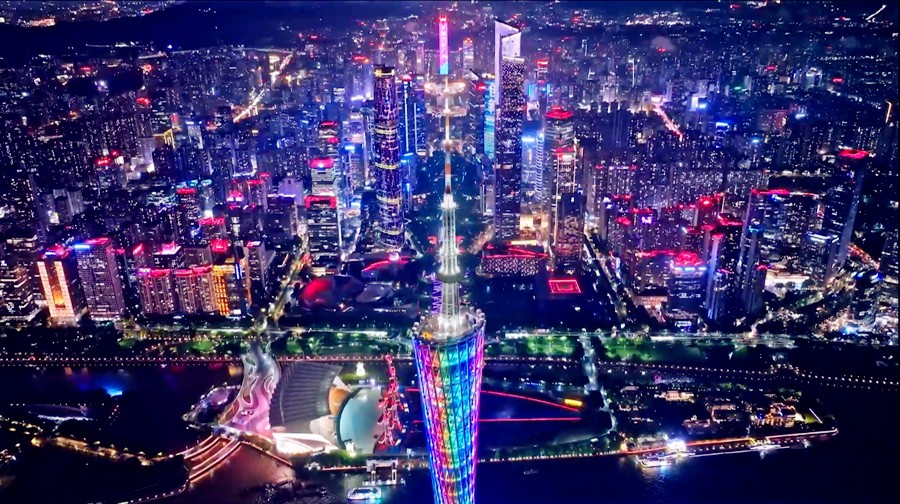
An aerial drone photo shows the urban nightscape of Guangzhou, south China's Guangdong Province. (Photo/Hobin Cheng)
Standing at a new historical starting point, Guangzhou is seizing the opportunity to host the 15th National Games and accelerate its transformation into an international sports hub. It is also advancing integration across the Guangdong-Hong Kong-Macao Greater Bay Area, creating a new chapter of high-quality development.
As the Games approach, Guangzhou is not only rewriting its sporting legacy but also redefining how tradition and innovation can move a city forward, leaving a lasting impact beyond the event. This ancient port pulses with new energy, showing how a city rooted in history can shape the future with confidence.

 Scan the QR Code
Scan the QR Code